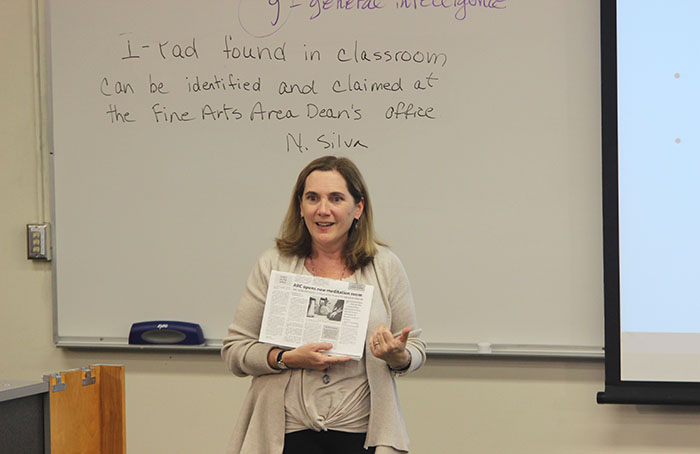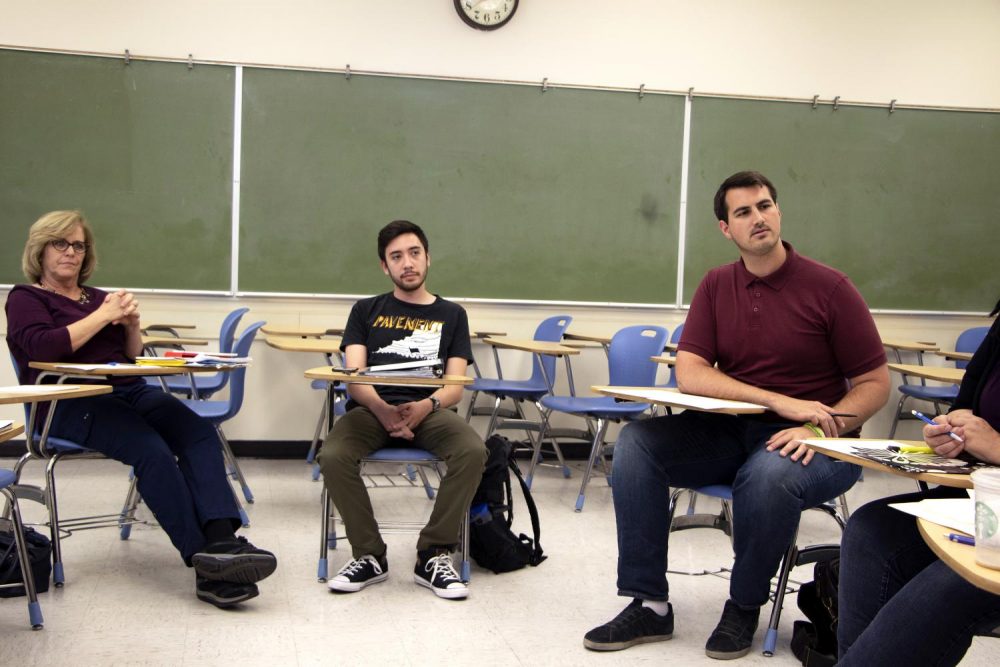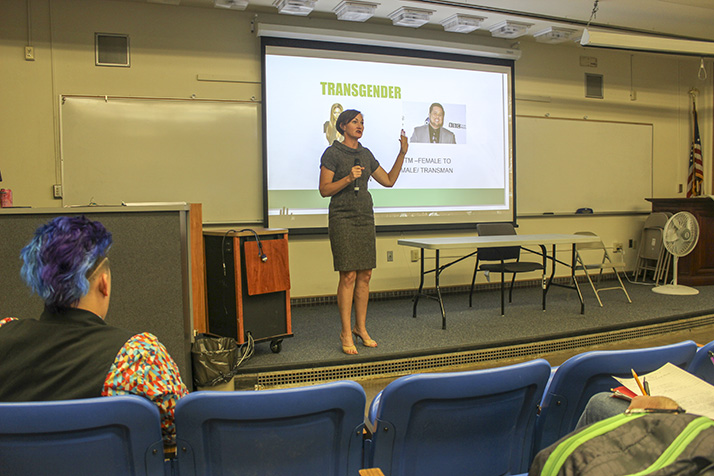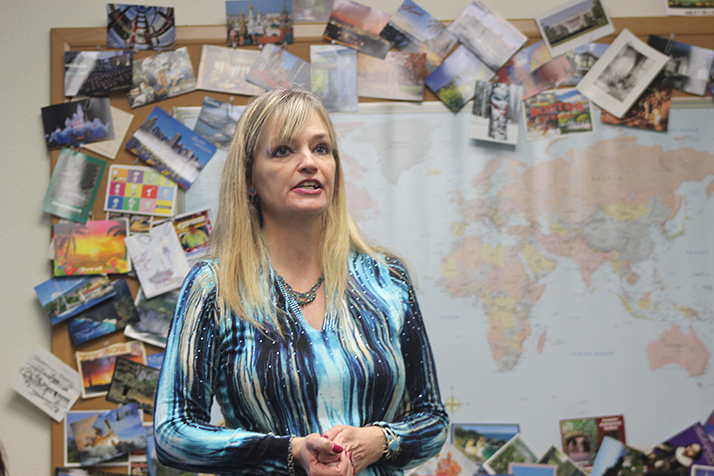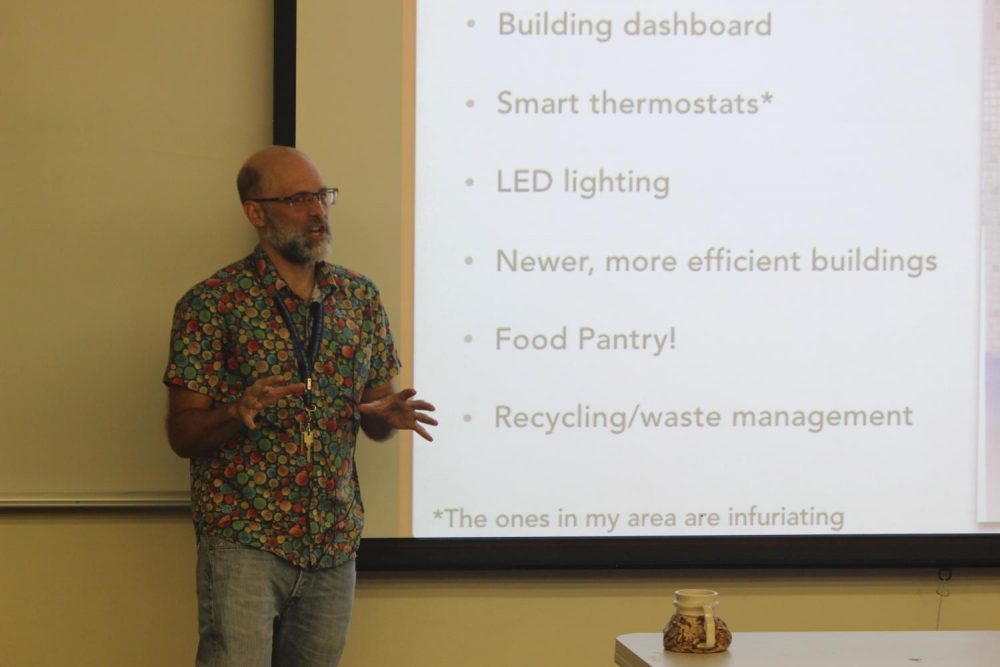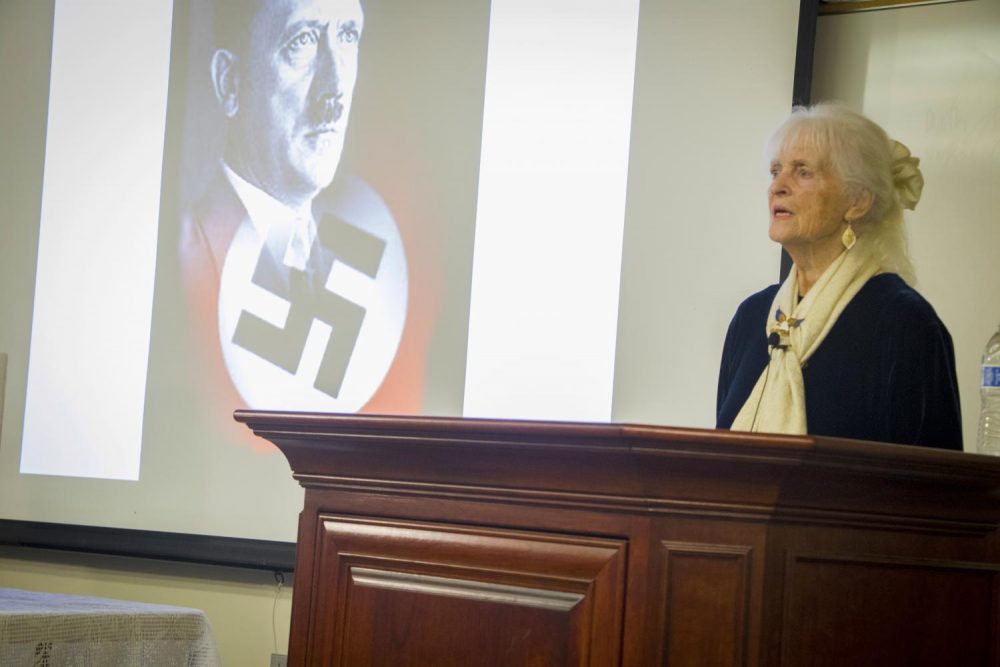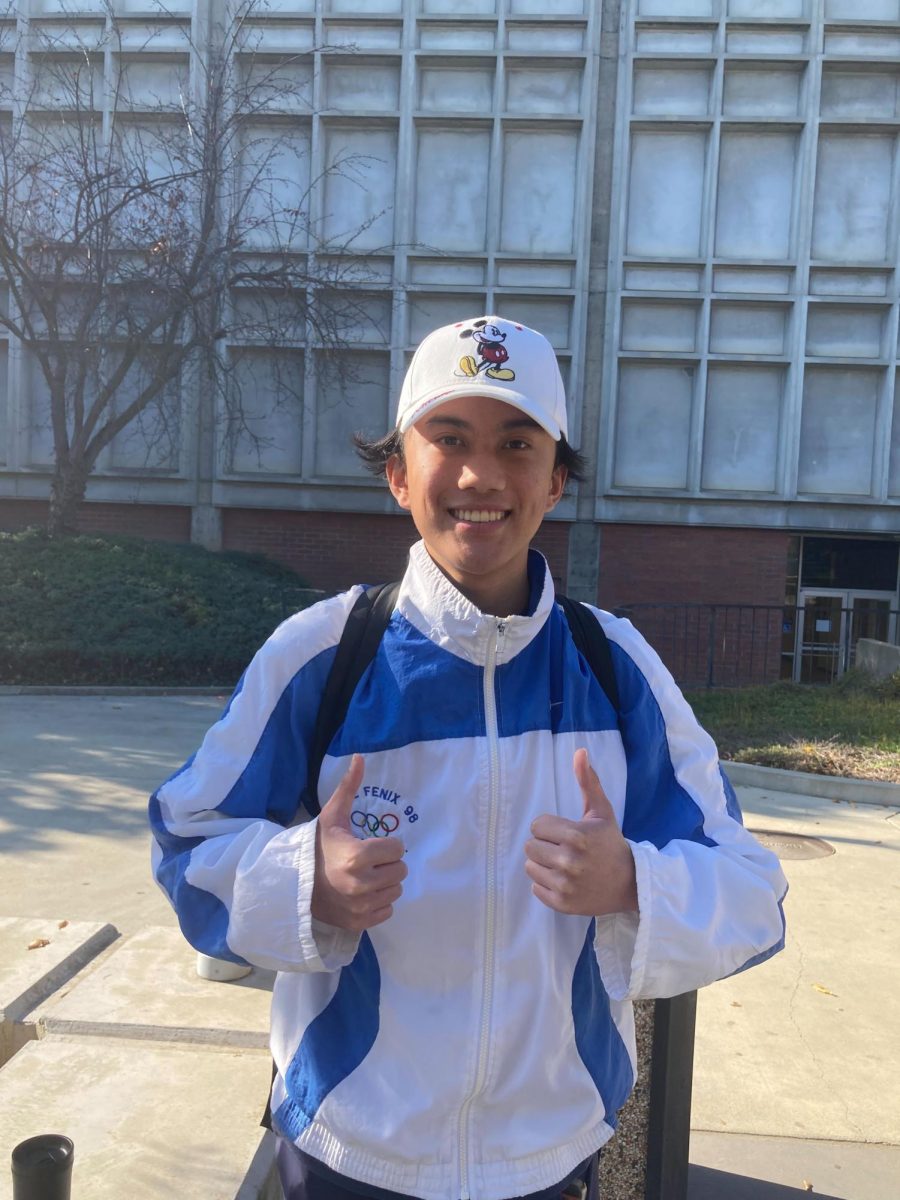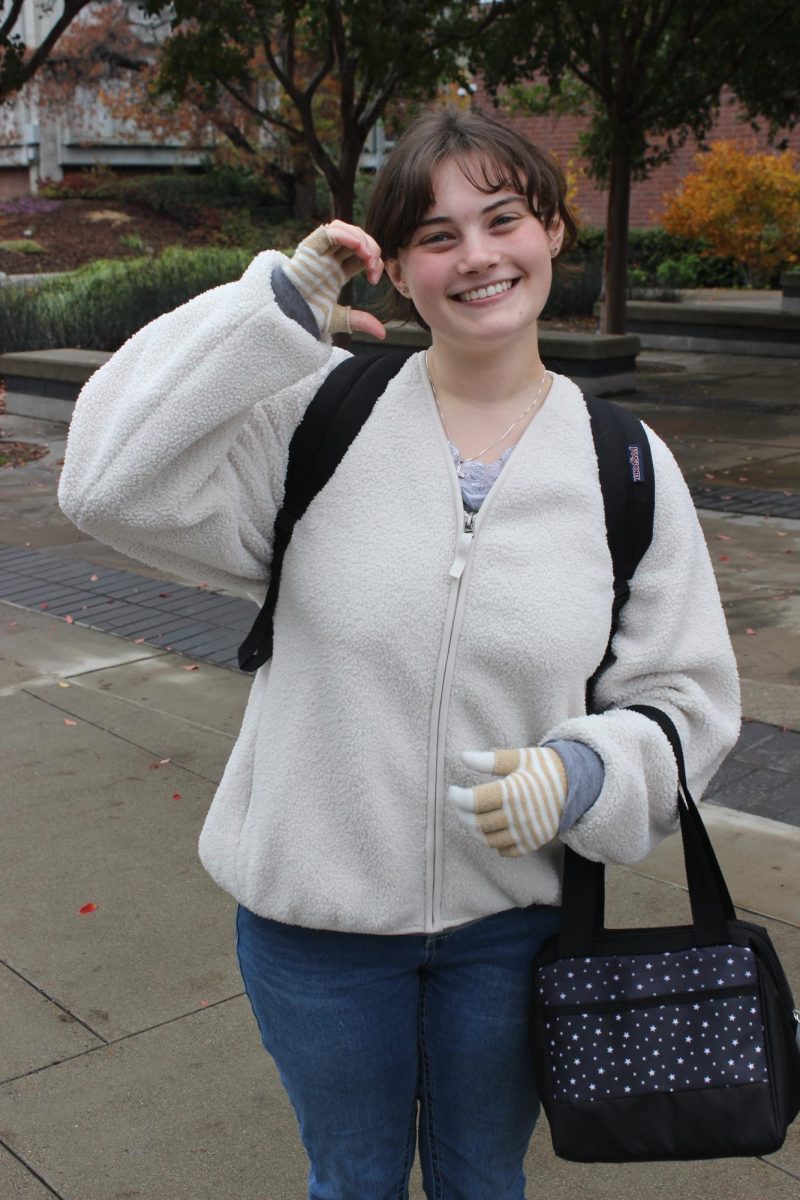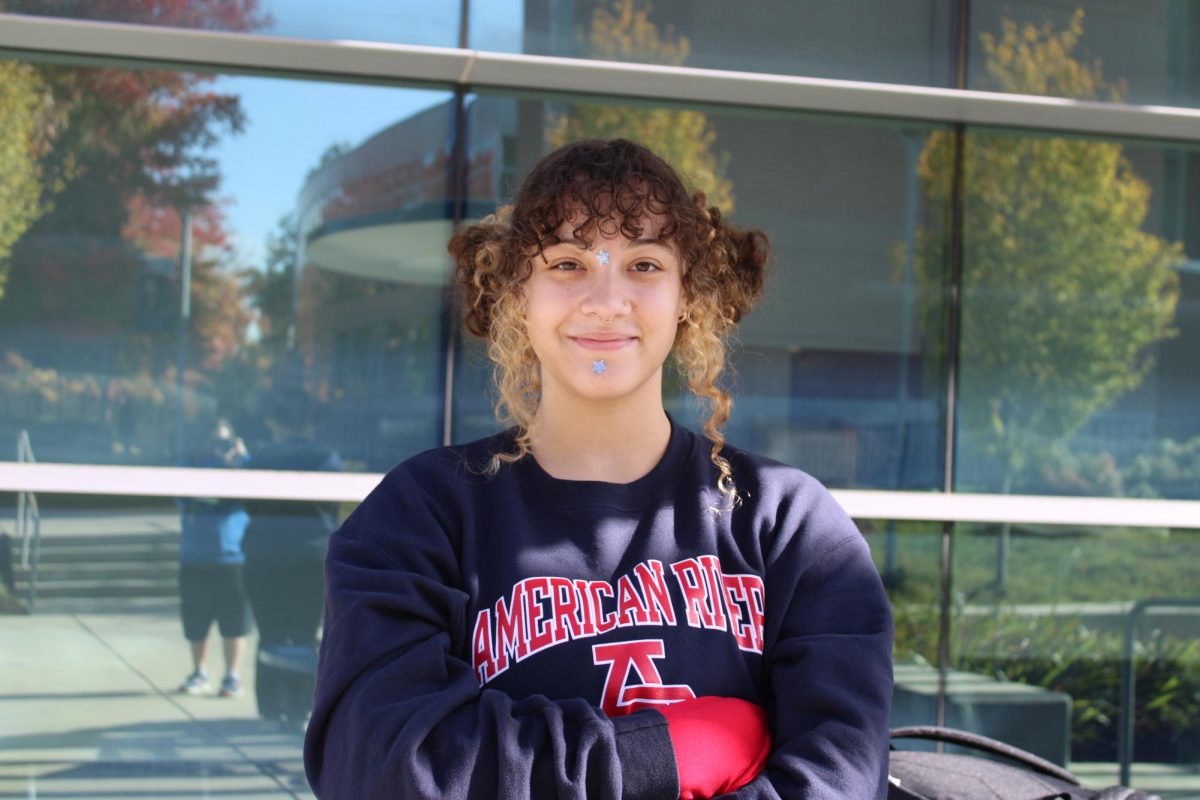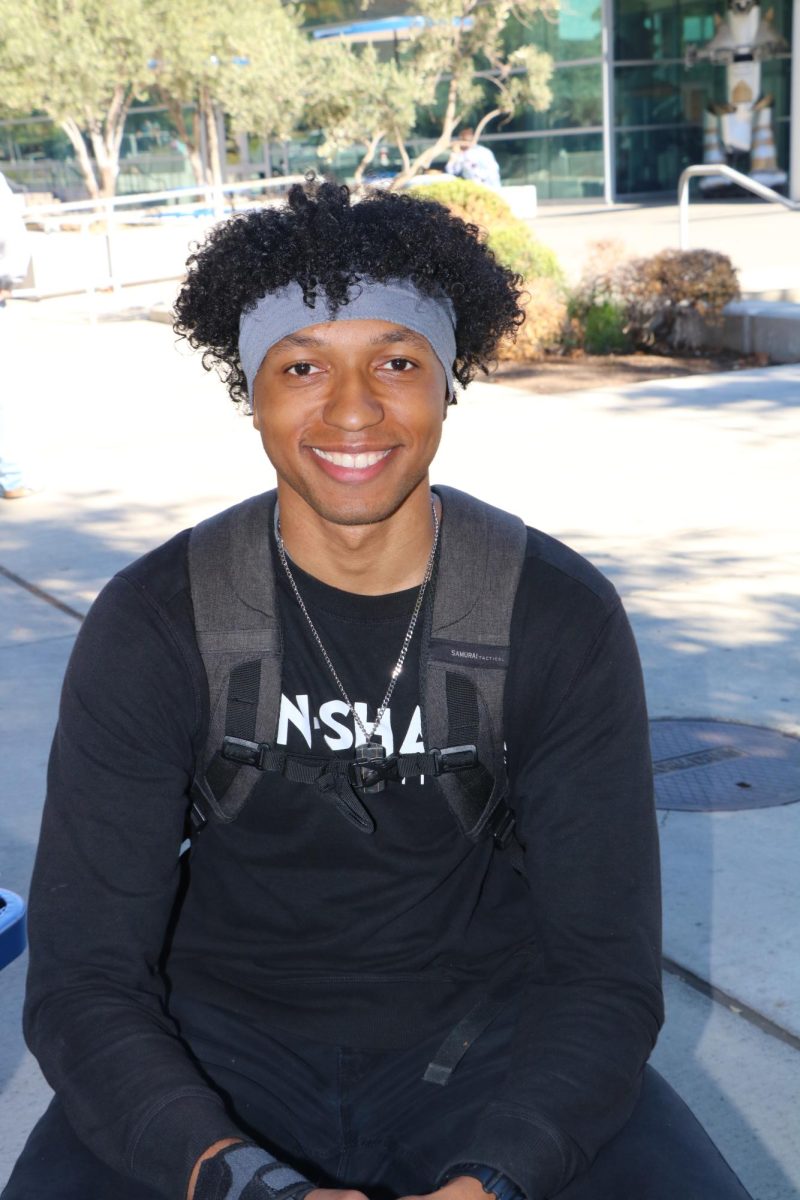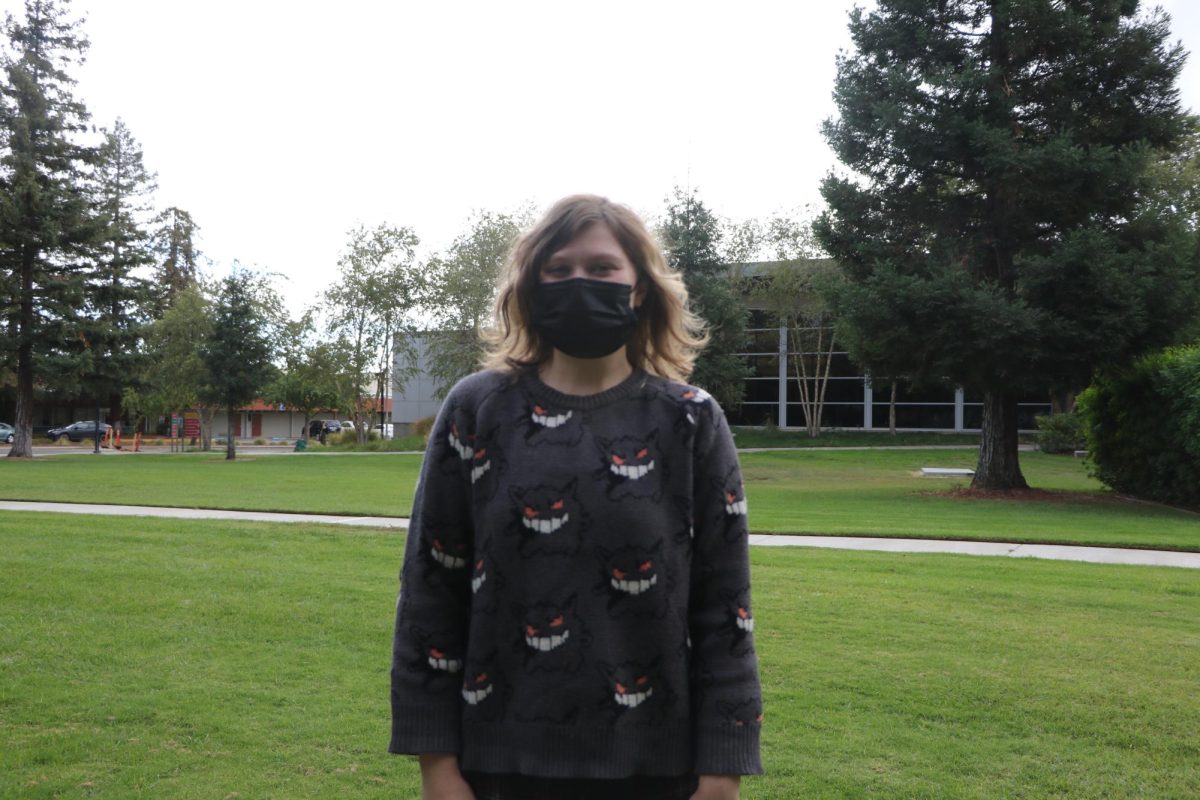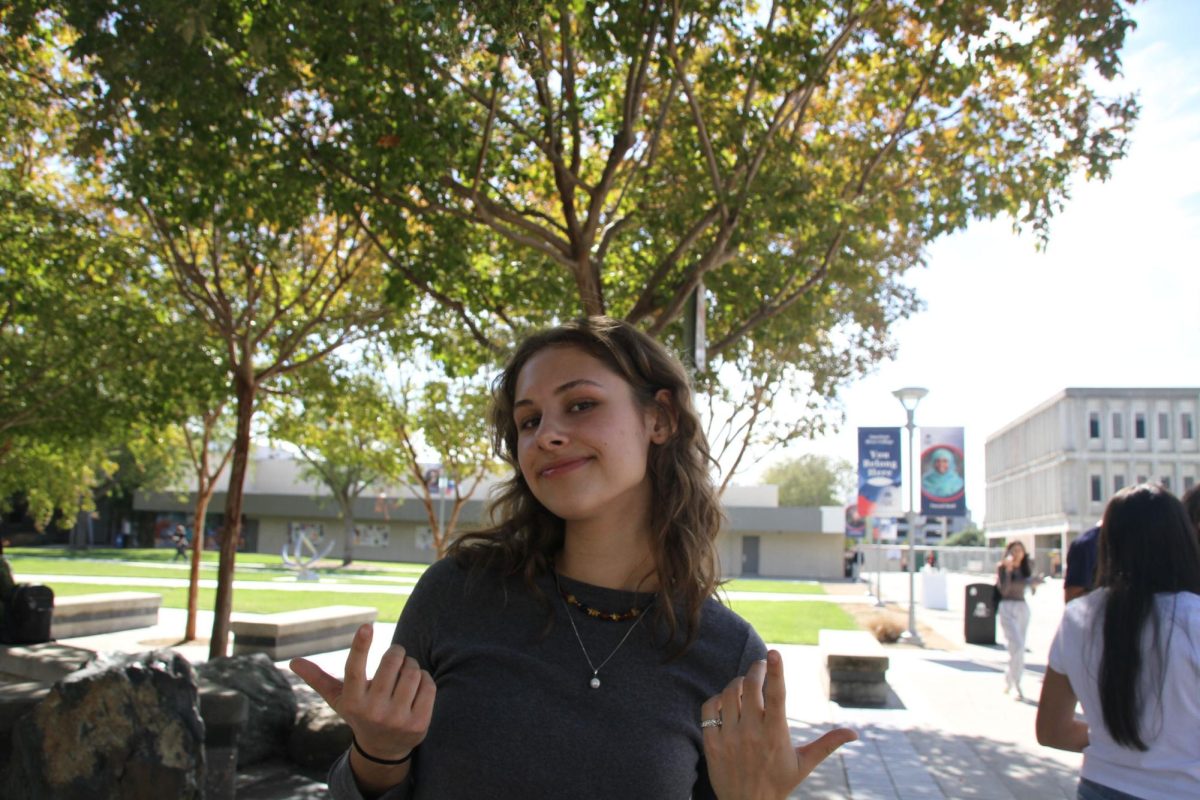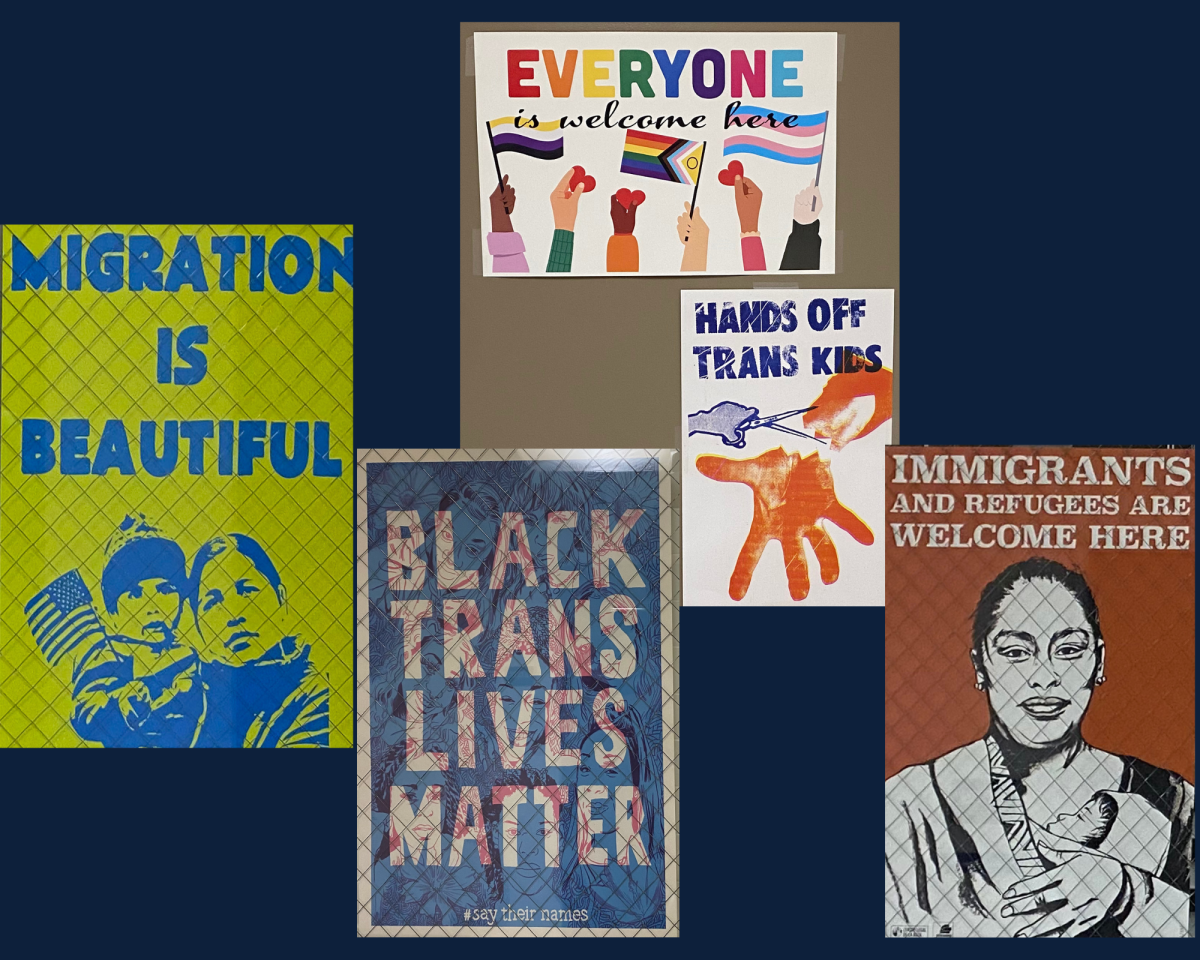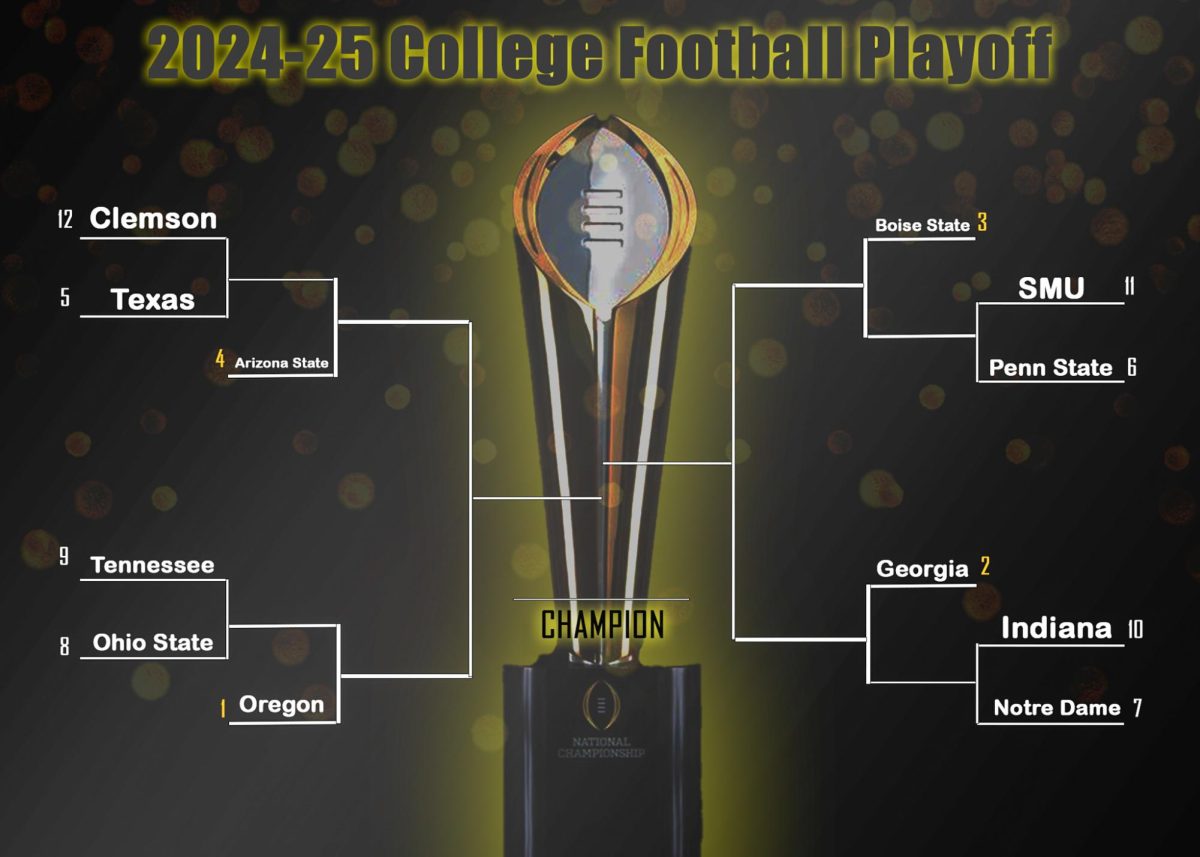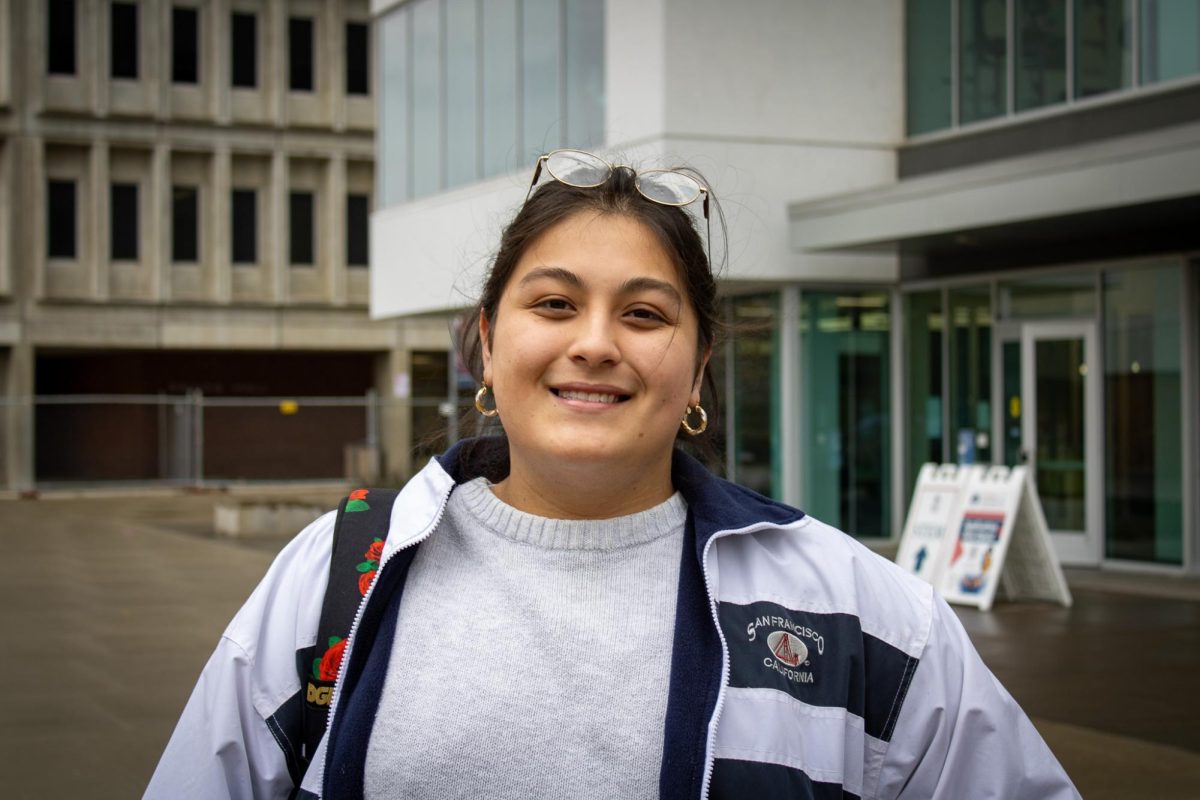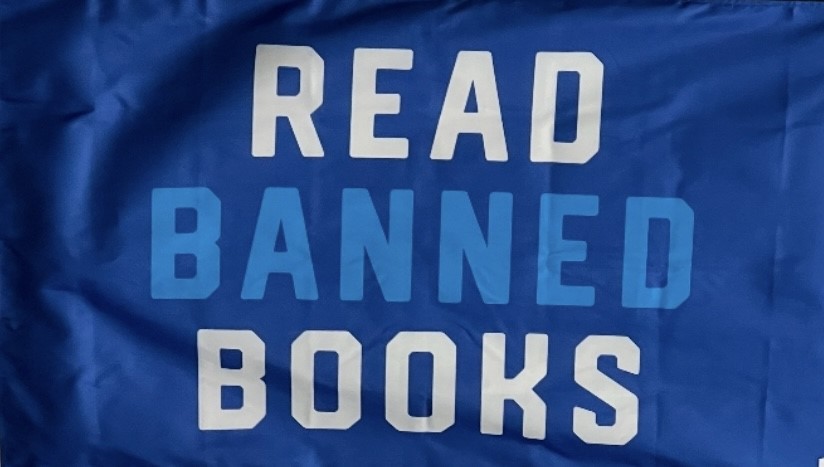During College Hour on November 2, the Interim Dean of Undergraduate Education at Chico State, Kate McCarthy, gave a lecture on religion in 21st century America.
“Essentially what we’ll be hearing about is how do we talk about something that most of us are not that comfortable talking about, which is religion,” Humanities Professor William Zengeneh-Lester said.
Much of the discussion was based on the concept of multi-religious literacy, the ability to understand the differences and nuances of different religions in society around you.
“Because we don’t talk about it, we end up not having a lot of information about it, or if we do we have particular types of information about it without having a sense of the nuance and complexity of the very diverse and complex country that we have,” Zengeneh-Lester said.
A description of the event on ARC’s main website listed it as a discussion on Diana Eck’s study titled, “A New Religious America: How A “Christian Country” Has Become the World’s Most Religiously Diverse Nation,” but the study was not what McCarthy said she intended to talk about.
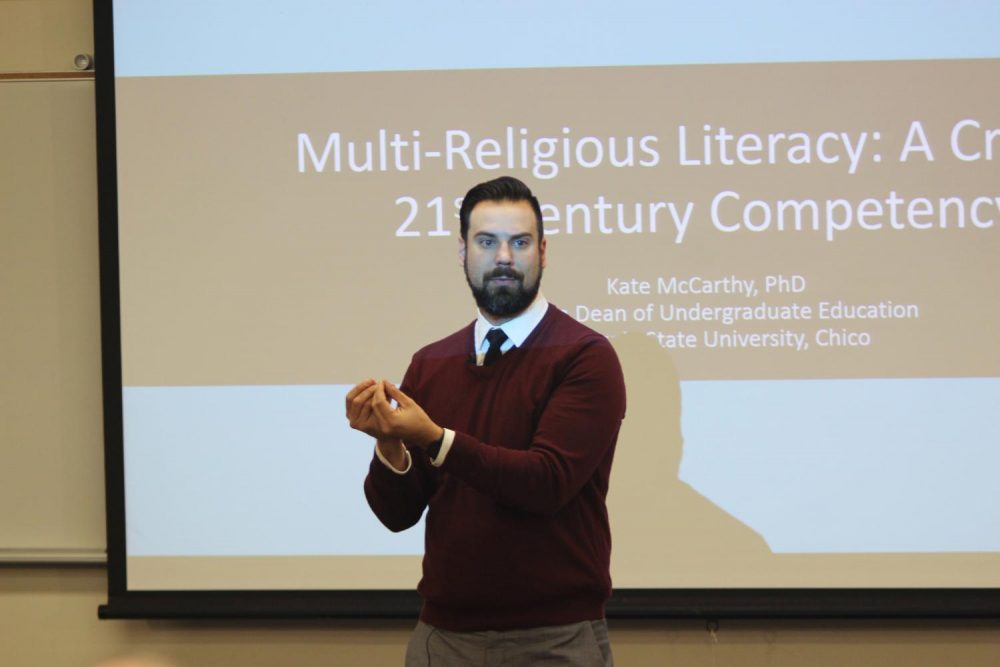
“True confession, I’m not going to talk about Diana Eck’s book. It’s a great book, everybody should read it. It started a conversation that developed very, very quickly following the publication of that book,” McCarthy said.
That conversation is the one surrounding America’s changing religious demographics, the makeup of our religious identities and the intensification of our interactions with one another.
McCarthy argues that due to our religious diversity as a nation, multi-religious literacy should be considered a critical competency.
“When we speak of religious literacy, I want to invite you to think of it in terms of language literacy,” McCarthy said.
McCarthy believes that in order to have religious literacy people need a knowledge of basic facts about religious beliefs and practices, awareness of the internal diversity of religions and how they change over time as well as a sense of the role of religion in history, politics and culture.
“You need to know that Islam is a monotheistic religion just like Judaism and Christianity, you need to know that not all Buddhists believe in a God, you need to know some basic historical facts about when these traditions emerged etcetera,” McCarthy said.
At the end of her lecture, McCarthy pitched a newly redesigned religious studies major program at Chico State.
“We are trying to reframe the study of religion in a way that makes sense for the world we live in now,” McCarthy said.
The degree will have an online completion program for the new religious studies majors and students will be able to livestream and participate in lectures from home or watch an archived video.
Chico State has also introduced a Certificate in Interreligious and Intercultural Relations for non-religious studies majors.
“This is for people who want to be journalists, who want to be healthcare workers, who want to be teachers, who are criminal justice majors wanting to go into law enforcement to develop these additional competencies,” McCarthy said.
Before taking questions, McCarthy held up a copy of The Current to point to an article about the opening of the Meditation and Reflection Space in the Center for Leadership and Development.
McCarthy praised ARC’s opening of the room as a “brilliant act of multi-religious literacy” for opening a religiously neutral space that “accommodates multiple religious and nonreligious purposes.”


